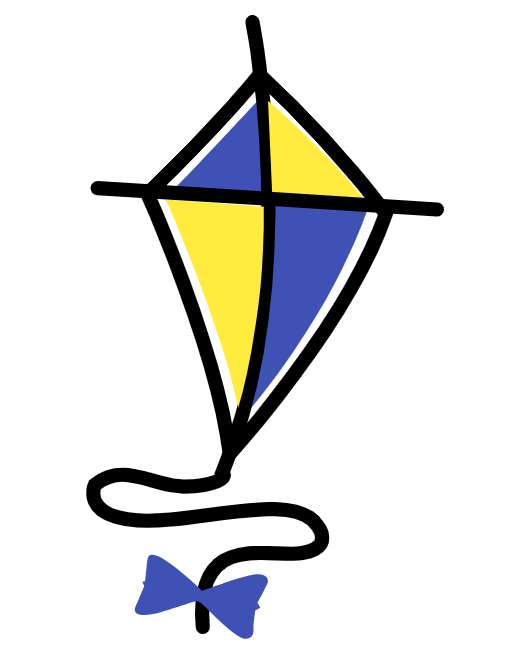The groups of Dr. Campeau (including Dr. Rousseau) and Dr. Fisher (including Dr. Snijders Blok) focused on CHD3 several years before the 2018 publication when they noted that rare de novo variants in this gene were associated with neurodevelopmental issues. They collected clinical and genetic information, along with samples from individuals with CHD3 mutations, to better understand the effects of the mutations. They collaborated together and eventually with CHD3 protein expert Dr. Paul Wade. Justine Rousseau and Sophie Ehresmann introduced mutations in a piece of DNA and the in vitro assays were performed by Joanna Twist and Motoki Takaku in Dr. Wade's lab (with Justine and Sophie visiting them to learn the techniques). The efforts of these researchers with the critical collaboration of clinicians, bioinformaticians and families allowed the eventual characterization of the syndrome caused by impaired activity of this chromatin remodeler.
Dr. Campeau
Dr. Campeau studied medicine at Laval University, specialized in medical genetics at McGill University and completed a postdoctoral fellowship at the Baylor College of Medicine. He now practices clinical genetics at the Sainte-Justine Hospital and the Shriners Hospital for Children in Montreal. His research lab studies epigenetic diseases, epilepsy, and skeletal dysplasias. They identify disease-causing genes, decipher disease pathophysiology, and improve the management of children affected by these conditions. More information can be obtained by visiting www.pcampeaulab.org.
Simon Fisher
Simon Fisher is a director of the Max Planck Institute for Psycholinguistics and Professor of Language and Genetics at the Donders Institute for Brain, Cognition and Behaviour, in Nijmegen, the Netherlands. He has a Natural Sciences degree from Cambridge University, and a doctorate in Human Genetics from Oxford University, UK. From 2002-2010 he held a Royal Society University Research Fellowship, leading a group at the Wellcome Trust Centre for Human Genetics in Oxford, before being recruited to a directorship at the Max Planck Institute in Nijmegen. There he heads a department investigating neurogenetic pathways involved in key aspects of human cognition and behaviour, especially speech, language, and reading. His team identifies rare gene disruptions that cause relevant neurodevelopmental disorders, and characterizes their functional impacts in model systems, including brain organoids grown in the lab. In parallel, they study contributions of common DNA variation to individual differences in cognitive, behavioural, and neuroimaging-based traits via large-scale genome screens.
Associated Sites
For Clinicians
We are collecting information from physicians on additional patients here: https://humandiseasegenes.nl/chd3/
We are also collecting DNA or blood for episignatures with Dr. Rosanna Weksberg.
For Families
We are conducting neurodevelopmental questionnaires with parents here: https://is.gd/neurodevelopmentalstudy
Abnormal pain sensitivity questionnaire study with Kimberly Lobo (Kimberly.Lobo@childrens.harvard.edu)
EEGs with auditory stimulation and high-resolution MRIs if the family can cover their travel to Montreal (khadije.jizi.hsj@ssss.gouv.qc.ca).
Published Research
Eising, Else et al. “A set of regulatory genes co-expressed in embryonic human brain is implicated in disrupted speech development.” Molecular psychiatry vol. 24,7 (2019): 1065-1078. https://doi.org/10.1038/s41380-018-0020-x
Early research into speech and language disorders discovered a mutation on CHD3.
Snijders Blok, Lot et al. “CHD3 helicase domain mutations cause a neurodevelopmental syndrome with macrocephaly and impaired speech and language.” Nature communications vol. 9,1 4619. 5 Nov. 2018, https://doi.org/10.1038/s41467-018-06014-6
First publication describing CHD3 as a cause of a neurodevelopmental syndrome in 35 individuals.
Drivas, T.G., Li, D., Nair, D. et al. “A second cohort of CHD3 patients expands the molecular mechanisms known to cause Snijders Blok-Campeau syndrome.” Eur J Hum Genet 28, 1422–1431 (2020). https://doi.org/10.1038/s41431-020-0654-4
A second publication examining 24 additional individuals brings the number of patients to approximately 60 and further defines the disorder. The syndrome was given its name between 2018 and 2020.
Miyako Mizukami, et al. “A de novo CHD3 variant in a child with intellectual disability, autism, joint laxity, and dysmorphisms.” Brain and Development, Volume 43, Issue 4, 2021, 563-565 https://doi.org/10.1016/j.braindev.2020.12.004
Case report of a 9-year-old child from Japan with severe ID, autism, joint laxity, and dysmorphisms.
Fan, Xi-Yong. “Snijders Blok-Campeau syndrome caused by CHD3 gene mutation: a case report.” “CHD3基因突变致Snijders Blok-Campeau综合征1例报告.” Zhongguo dang dai er ke za zhi = Chinese journal of contemporary pediatrics vol. 23,9 (2021): 965-968. doi:10.7499/j.issn.1008-8830.2106091
Case study of a 14 month old girl from China. Note: full text is in Chinese.
LeBreton, L. et al. “A novel CHD3 variant in a patient with central precocious puberty: Expanded phenotype of Snijders Blok-Campeau syndrome?” American Journal of Medical Genetics Part A, 191A: 1065– 069.
Describes a young CHD3 female with central precocious puberty.
van der Spek, Jet et al. “Inherited variants in CHD3 show variable expressivity in Snijders Blok-Campeau syndrome.” Genetics in medicine : official journal of the American College of Medical Genetics vol. 24,6 (2022): 1283-1296. doi:10.1016/j.gim.2022.02.014
Examines 21 families with inherited CHD3 showing variable expressivity of the syndrome.
